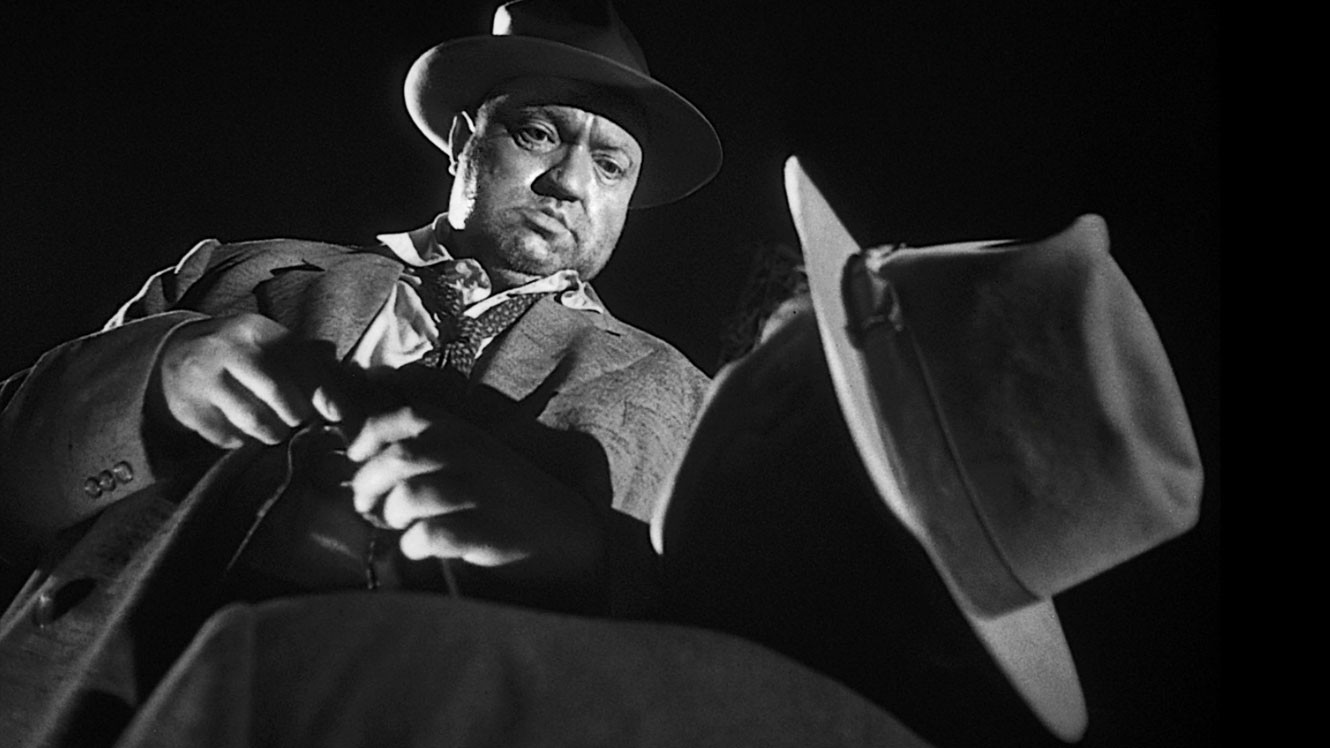
Six Close Encounters 2015 / Touch of Evil / USA 1958
Luis Miñarro presents
In this suspenseful drama set on the American-Mexican border, every character is gradually pulled into a vortex of evil and moral ruin. Welles’ captivates with intercut long shots, the kind made famous in Citizen Kane (1941), and this time around he latched onto film noir with an approach reflected in the warped characters and the evocative play of light and shadow.


Vargas, the Mexican head of anti-drug enforcement, doesn’t seem to have chosen well when he decides to start his honeymoon with his beautiful wife in a town on the Mexican-American border. It’s not only that shortly after their arrival a car explodes, killing a local bigwig and his mistress, but as soon as he begins investigating, he crosses paths with local police captain Quinlan. The man looks like a huge, bloated frog, especially in expressive low-angle shots, which Welles employs with other unusual camera angles whose dramatic impact had already been vetted by cinematic expressionism. Game-legged Quinlan swears by his infallible reputation as a lawman, claiming that his case-solving success rate (100%) is the result of his miraculous intuition. So it’s no surprise he’s less than thrilled by Vargas’ activities on his turf, especially after Vargas gets closer to the root of how things really are with his famed intuition... The film (graced with a star-studded cast) seems almost engulfed in a dark ecstasy, intensified by restless editing and edgy background music.
Zdena Škapová
108 min / Black & white, DCP
Director Orson Welles
/ Screenplay Orson Welles podle knihy / based on the book Badge of Evil by Whit Masterson
/ Dir. of Photography Russell Metty
/ Music Henry Mancini
/ Editor Virgil Vogel, Aaron Stell, Edward Curtiss
/ Art Director Alexander Golitzen, Robert Clatworthy
/ Producer Albert Zugsmith
/ Production Universal Studios
/ Cast Charlton Heston, Janet Leigh, Orson Welles, Joseph Calleia, Marlene Dietrich
/ Sales Universal

Orson Welles (1915, Kenosha, Wisconsin – 1985, Hollywood), film and theater director, screenwriter, and actor, seems to have been born with a variety of important talents. After his parents’ early death, young Orson was entrusted to a guardian, making the story of Citizen Kane (1941), a pioneering work included in every film textbook, vaguely autobiographical. But it was no box office success at the time of its release in the US, and neither was The Magnificent Ambersons (1942) or The Lady from Shanghai (1947). His films received a much warmer reception in Europe, where he repeatedly returned to shoot: Othello (1952) and The Trial (1962) were made in France, Chimes at Midnight (1966) in Spain. He was also interested in theater and in playwrights, especially Shakespeare, whose plays he staged and characters he acted. Welles was an explosive talent who embraced a wide range of genres and marked them with his own unique touch of genius.
Universal
100 Universal City Plaza, CA 91608, Universal City
United States of America
Phone: +1 818 777 0645
Fax: +1 818 866 1476

Gabriel M. Paletz
Journalist
First-hand brews throughout the year.
Be among the first to learn about upcoming events and other news. We only send the newsletter when we have something to say.